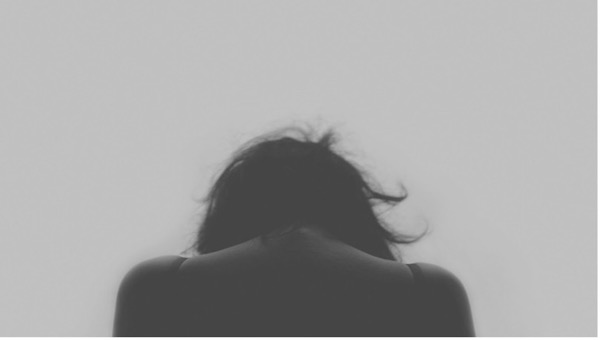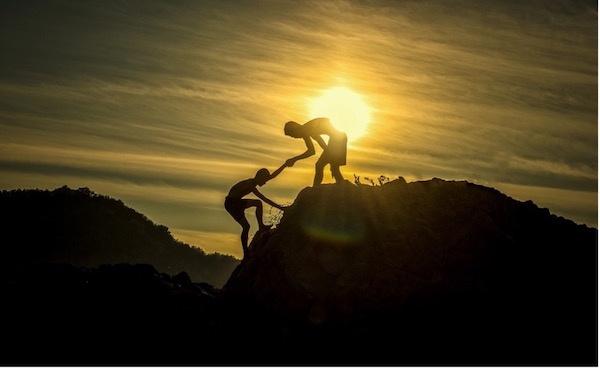
The COVID-19 Pandemic Anniversary: How to Process Your Feelings and Move Forward
As much as we looked forward to 2021, there is an issue we cannot escape. The new year is also the anniversary of when COVID-19 became a part of our everyday vocabulary and the response to it took over our lives. In the beginning, the more prepared started stocking up on Clorox wipes and hand sanitizer, and a low-grade anxiety started bubbling through our communities and the world. We started having discord over whether or not to wear a mask and stay home. In just a few months, we all found ourselves living in a very different world than we expected. With these changes has come a lot of loss; with loss comes grief.
Why Am I Feeling Anxious and Depressed?
The anniversary of the lockdown is the one that we stand before now. It is a common symptom of bereavement to have a vague sense of something being “wrong,” to re-experience symptoms of grief that, many months after the traumatic event, appear as anxiety and depression. The unique attribute of this particular grief is that the last year has been spent trying to adjust to lockdown, preserve jobs and businesses, homeschool children, and see how long you can go without a haircut or actually hugging your friends and family. From the mild inconveniences to the significant and traumatic losses and changes, our energy has been spent surviving. Most have not had the space to grieve and cope with the loss, which compounds the effect and distress of this anniversary.
So much energy was being poured forth at such a consistent and sustained pace to manage the ever-changing challenges and responsibilities, all the while managing our emotional reaction to the anxiety and tension that surrounded us. So here we are, March 2021, remembering where we were when the lockdown was announced, thinking of life as before the lockdown and after the lockdown. And most stand in this place feeling depleted while finally taking some space to reflect on all that has been lost. Because we cannot avoid it. No matter how much we are still struggling or what we have incorporated back into life that seems more “normal,” the anniversary is knocking at the door and we are going to feel it.

3 Steps to Help You Cope with Covid-19 Grief and the Future:
1) Let’s start with drawing attention to the value your life holds.
While it is understandable that in the last year, we got wrapped up in the practical needs and challenges of daily life, let’s remember why we are doing these things: To protect human life. This past summer, we saw the eruption over the lack of respect for human life. No one demanded to know if the individuals whose lives weren’t respected deserved value being placed on their lives or had earned it. We acknowledged their inherently valuable humanity and appropriately cried out when their lives were mistreated and taken. You get the same weight of value placed on your life. See what difference remembering why we are in this situation can make—we locked down to protect life. So, take care of yours!
2) Recognize the difference between needing healing and being defeated.
What did this last year bring to the surface for you? For many, this year has exposed some old wounds and created some new ones. Don’t be alarmed, we all have them. But check your thoughts about the wounds, about yourself, about your current emotional state. It is very human to want to skip over this kind of pain. I think there is a fear associated with the pain – “If I feel it, I’ll never recover,” “I’ll discover something about myself I don’t want to know,” or “Others will see what I don’t want them to know,” etc. Letting the pain hang out there long enough to actually engage with the sting allows you to challenge the beliefs. Your thoughts aren’t facts. The thinking error called “emotional reasoning” says that if it feels bad, then it is bad. You may be experiencing grief, pain and loss; that does not mean you are defeated. Allow those places of pain a safe space to land, be exposed and dealt with. There’s beauty on the other side. Discomfort comes first; healing and strength come next.
3) While it is human to seek comfort in the physical, it doesn’t satisfy you because we are made for more.
As we talked about in the previous post about the COVID19 weight gain, many understandably sought solace in food and alcohol in the last year. As you probably know (even if you are still using these substances), that is a black hole. The relief is temporary; the disappointment and physical ramifications remain. Humans are made of mind, emotions, spirit AND body, not just body. That is why trying to satisfy flesh and physical desires falls flat and the solace does not last. So yes, feeding yourself healthy food, sleeping, exercising, are all good things. Consider adding family and social connection, serving your community, praying and/or meditating, and pursuing intellectual interests and creative endeavors. An open heart is the antidote to so much misery and the facilitator of wonder, adventure, and beauty.

Moving Forward
While the losses in 2020 have been devastating, they are not the whole story. Give yourself space to grieve, manifest the value you hold, and keep your eyes open. Things will never be the same, but they wouldn’t have been anyway. We are always growing and the world is always changing. As you process your grief, you weave the last year into the tapestry of your life. Moving forward, what is in store for you?
We’re here to help you if you need a little extra support. Help for Wellness (HFW) provides therapy to individuals, couples, and groups to help them unlock their potential to live healthier, happier, and more fulfilled lives. Learn more about the specific services we offer and contact us to schedule your free 20-minute consultation today!
 Next Post
Next Post